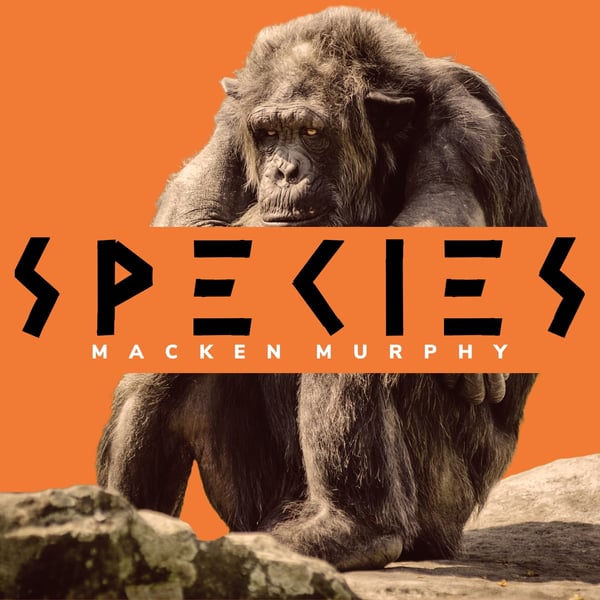Forgotten Apes | Dr. Susan Cheyne
Species
Macken Murphy
4.8 • 606 Ratings
🗓️ 5 May 2024
⏱️ 90 minutes
🧾️ Download transcript
Summary
An audio essay on human nature, followed by an interview with primatologist Dr. Susan Cheyne. Susan is the co-director of the Borneo Nature Foundation International and the Borneo River Initiative for Nature Conservation and Communities, she is the Vice Chair of the IUCN Section on Small Apes, and she is also a Senior Lecturer at Oxford Brookes; she has been studying gibbons for about 27 years. Our conversation is wide-ranging, but centers on gibbons. We discuss gibbon locomotion, life among gibbons, the nature and function of gibbon song, gibbon violence, monogamy, and infanticide (and lack thereof), and other subjects. Enjoy.
Dr. Cheyne's research: http://www.susancheyne.com
IUCN Section on Small Apes: https://gibbons.asia/
Timestamps:
0:00 Are humans naturally monogamous?
17:27 Introducing today's subject and guest
20:25 Gibbon overview (interview starts)
31:57 Why do humans have twins?
34:02 A day in the life of a gibbon
38:57 Studying gibbons
40:37 Forgotten apes
44:06 Monogamy
1:09:27 Violence
1:11:34 Singing
1:17:49 Intelligence
1:23:28 Conservation
Sources relevant to the introduction:
Stewart-Williams & Thomas | "The Ape That Thought It Was a Peacock" | 2013
Fisher | "The Anatomy of Love" | 2016
Ryan & Jethá | "Sex at Dawn" | 2010
Kramer | Pew Research | 2020
Marlowe | Behavioural Processes | 2000
Chapais | Evolutionary Anthropology | 2013
Schacht & Kramer | Sec Behavioral and Evolutionary Ecology | 2019
Shankman | "The Mead–Freeman Controversy Continues" | 2018 (I'm not sure if this view is correct; once again, you can find academics on both sides of this.)
Transcript
Click on a timestamp to play from that location
| 0:00.0 | I think it's weird when people ask if violence is natural, or if eating meat is natural, |
| 0:06.1 | or if infidelity is natural, or whatever else. |
| 0:08.4 | It's like, you would never even ask this sort of question about the behaviors of rabbits |
| 0:12.9 | or ducks or snails or any other animal. |
| 0:18.6 | If a bunch of ducks were regularly getting up to something, you would never |
| 0:23.3 | think, hang on, is this natural behavior? Because the behavior is automatically natural by virtue |
| 0:30.0 | of them being animals. So, implicit in these sorts of questions, is a positioning of humans in a special place above other species, |
| 0:41.4 | where some of our behavior is outside of nature, and, more remarkably, outside of our own nature. |
| 0:50.9 | And some of you are comfortable with that positioning. |
| 1:02.0 | And I might not be able to make a persuasive argument against the idea that humans are special for their ability to transcend their own nature. |
| 1:08.3 | But I could take you on a graveyard tour of dead ideas about human specialness. |
| 1:12.2 | We used to say humans were unique for our tool use, |
| 1:14.4 | unique for our ability to have culture, |
| 1:17.6 | unique for our culture gene co-evolution, |
| 1:20.4 | for our non-kin cooperation, |
| 1:22.7 | for our ability to wage war, all of these claims to human uniqueness, |
| 1:25.0 | and more, |
| 1:26.0 | have by now been put to bed by multiple examples in other species. |
| 1:31.1 | And since I know language is ringing in your ears, as a potential candidate for human uniqueness, |
| 1:37.3 | I'll paraphrase my old advisor at Boston University, the anthropologist Matt Cartmill, |
| 1:43.6 | who quipped that researchers come up with a |
| 1:46.0 | new definition for language whenever the old definition is discovered to apply to another species. |
... |
Please login to see the full transcript.
Disclaimer: The podcast and artwork embedded on this page are from Macken Murphy, and are the property of its owner and not affiliated with or endorsed by Tapesearch.
Generated transcripts are the property of Macken Murphy and are distributed freely under the Fair Use doctrine. Transcripts generated by Tapesearch are not guaranteed to be accurate.
Copyright © Tapesearch 2025.

